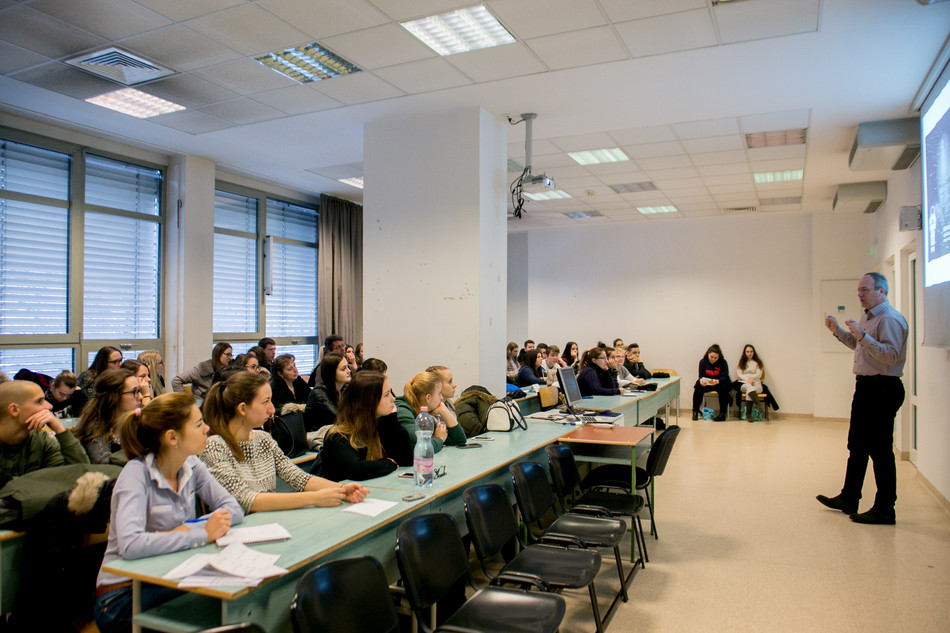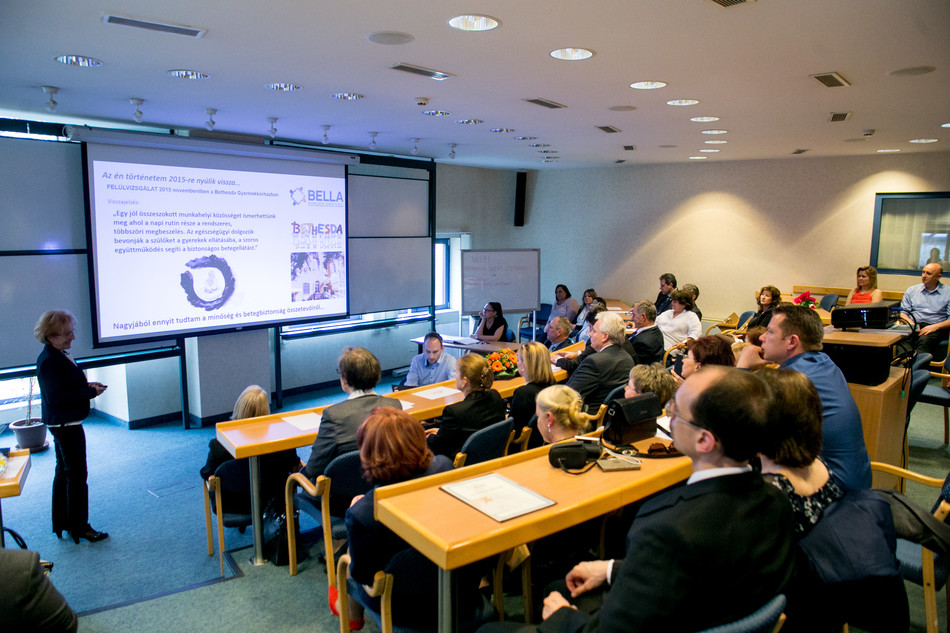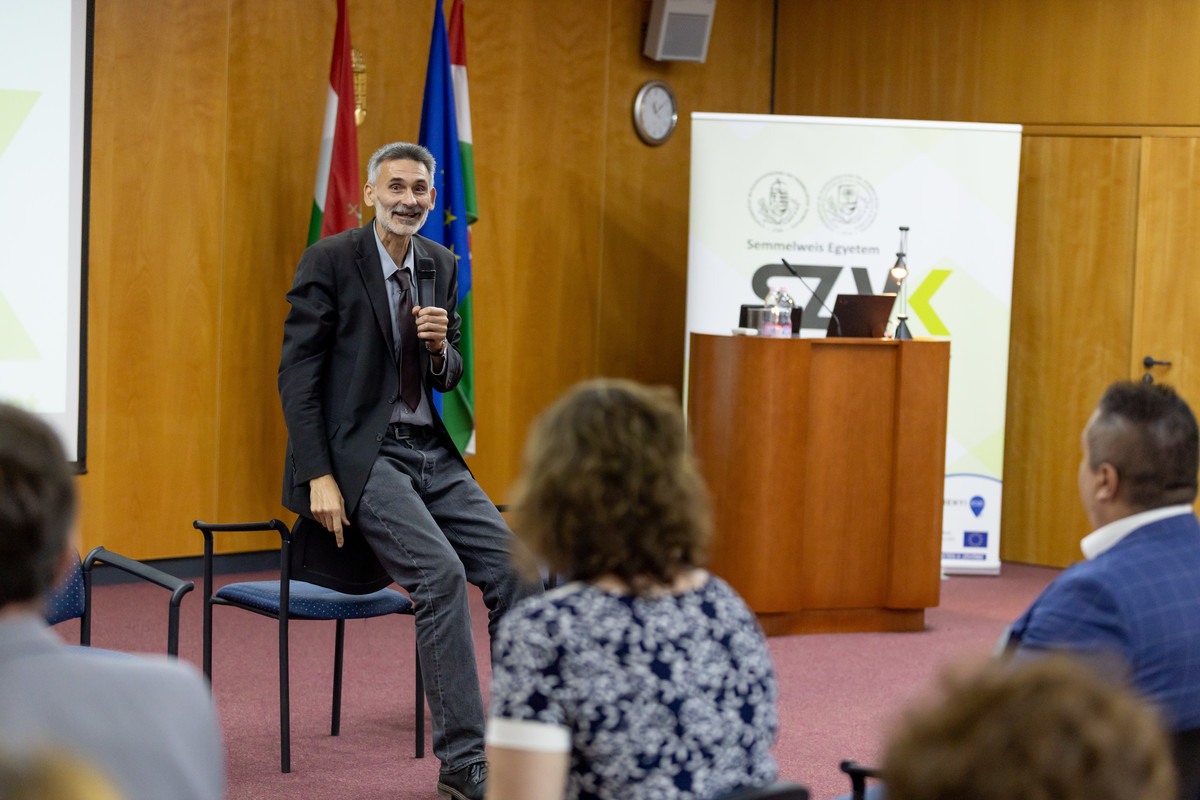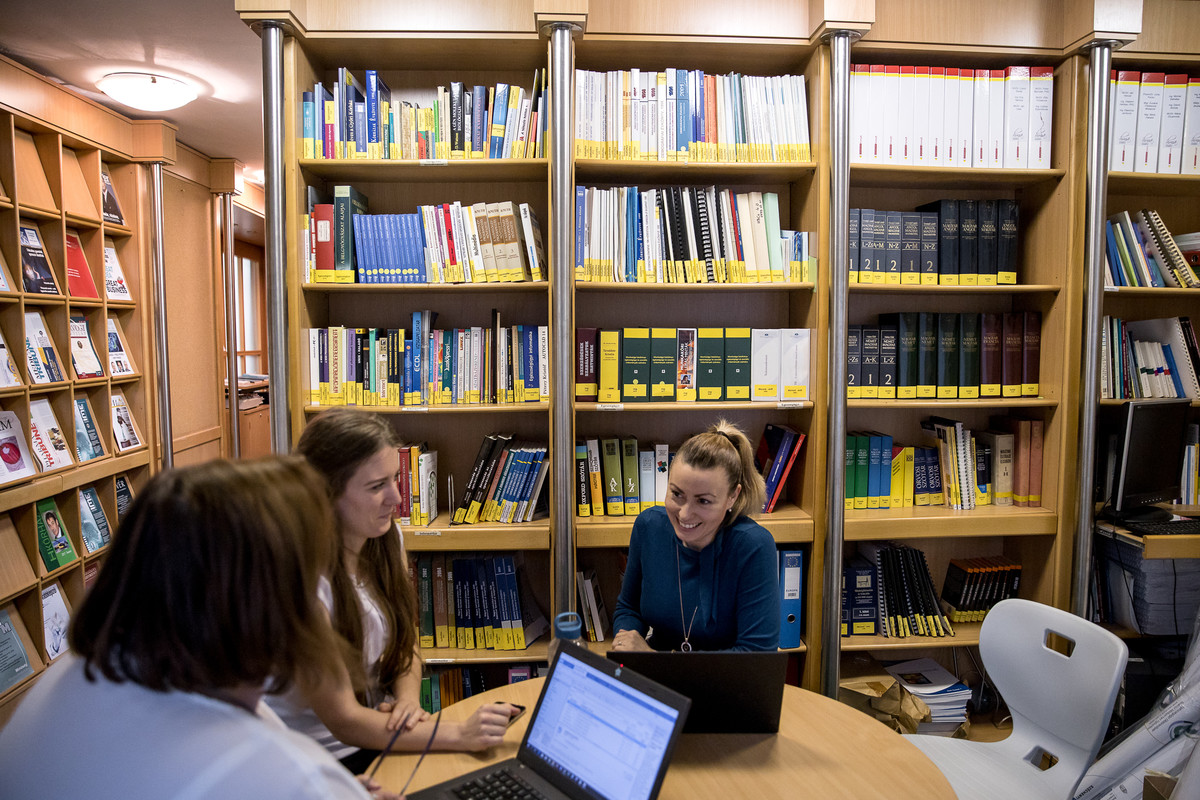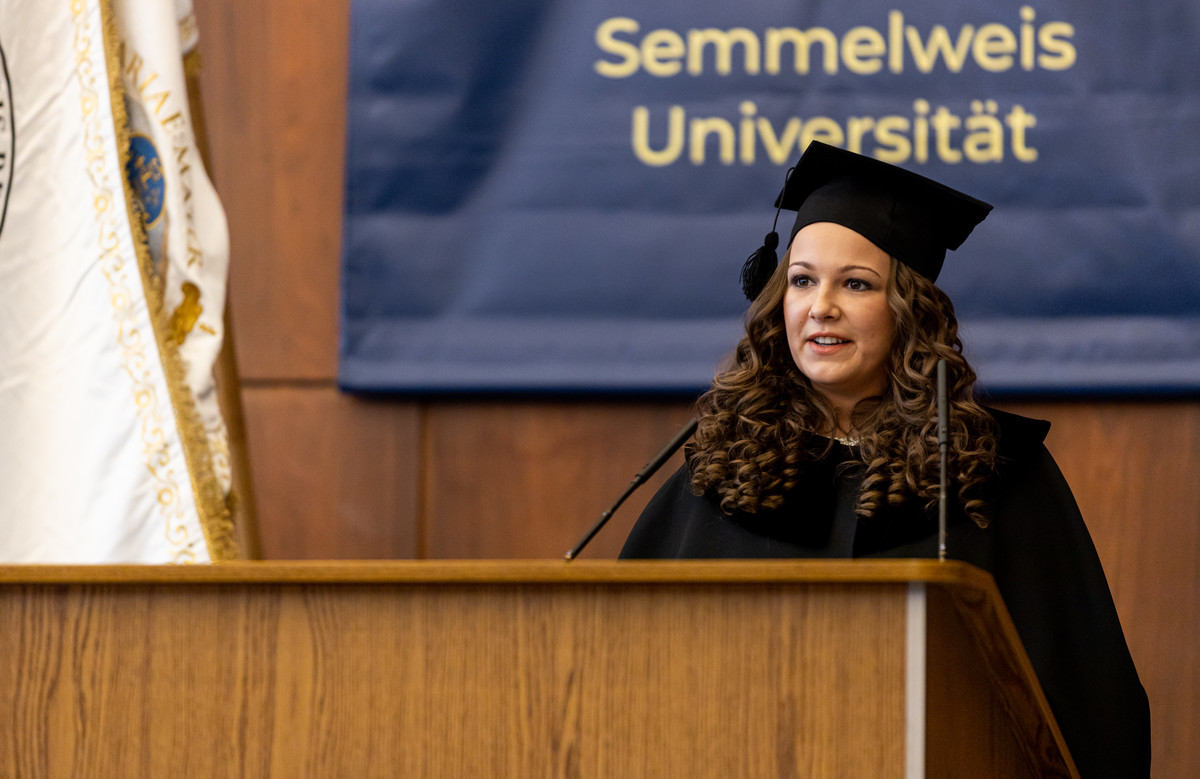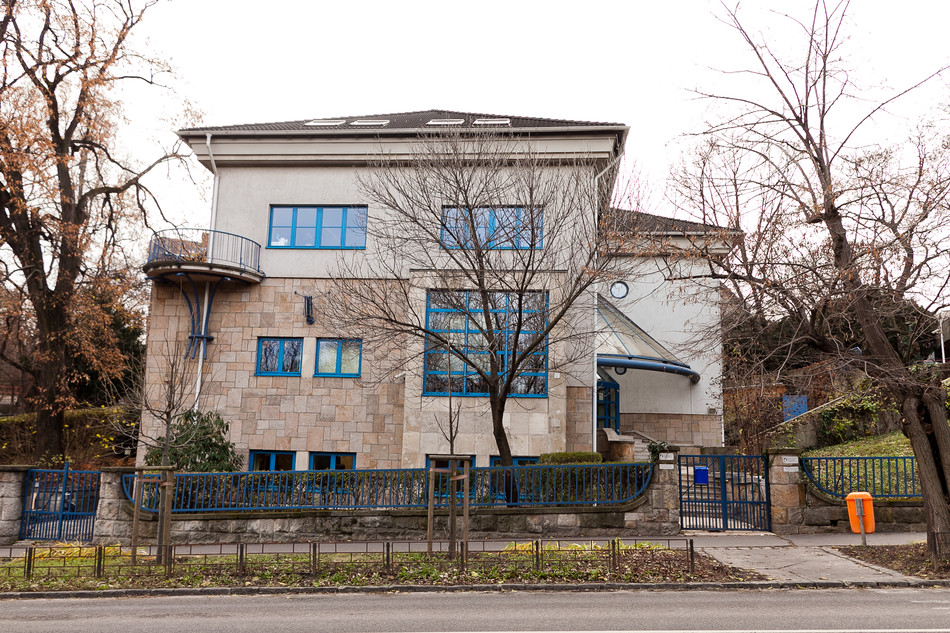The Faculty of Health and Public Administration (EKK) is recognized as a leading institution in Europe. Its mission is to provide a home for organizational, community and personal development activities in the fields of quality education, research, social science innovation and counseling.
Faculty of Health and Public Administration
Founded: in 2010
Dean: Dr. Beáta Pethesné Dávid
Number of students: 825
Ratio of foreign students: 3,27%
Address: 1091 Budapest, Üllői út 25.
Phone: +36 1 459 1500 ext. 55635
Departments →
The Faculty’s dynamic, dedicated experts in health policy, health security, cybersecurity, patient safety, public health, human resource planning, change management, data-driven health, e-health and social care are key players in major research, national and international collaborations.
It is one of the youngest faculty of Semmelweis University, established in 2010 with the participation of three institutes working at the interface of natural and social sciences: the Institute of Health Informatics Development and Further Training, the Health Services Management Training Centre and the Institute of Mental Health.
EDUCATION
The Hungarian language programs cover the whole spectrum of training, from bachelor, master and doctoral studies to higher vocational education and training in the fields of health management, mental and community health and health informatics. The Faculty focuses on the social sciences, but also integrates interdisciplinary trainings.
There is a postgraduate program launched in Bratislava, Slovakia, since more than a decade. The Slovakian-language Health Care Manager’s Program is highly practice-oriented: knowledge sharing, discussion of experiences, personal cases and examples are as important as theoretical knowledge. Joint problem-solving plays an important role. The experiential learning approach to management training means that the new knowledge acquired can be recycled almost immediately.
RESEARCH & DEVELOPMENT
Fields of particular importance include healthcare quality management and patient safety, big data and network analysis, health policy, human resources for health development, project management and dissemination.
The improvements of the research program and the reporting system are based on the principles given by the World Health Organization.
INTERNATIONAL RELATIONS AND PROJECTS
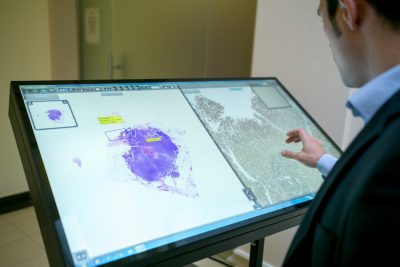 The teaching staff and colleagues work together with leading institutes and professionals around the world including, for instance, the World Bank Institute, the European Health Property Network, the European Observatory on Health Systems and Policies, and the World Health Organization.
The teaching staff and colleagues work together with leading institutes and professionals around the world including, for instance, the World Bank Institute, the European Health Property Network, the European Observatory on Health Systems and Policies, and the World Health Organization.
The aim of the numerous ongoing international projects at the Faculty is, among others, strengthening proactive cyber defence, direct and rapid detecting of the multiresistant bacteria in clinical samples, creating a repository of digital copies of around 3 million pathology slides covering a range of disease areas.
Further focuses of the projects are the adapting, replicating and implementing evaluated effective health interventions in the areas of food reformulation monitoring, framing of aggressive marketing of food, and public procurement of healthy food in public settings. Or reinforcing the capacity of care authorities to address successfully important aspects for example to change management and re-organisation of the existing care models, the re-organisation of patient pathways, health workforce roles and skills with digital technologies and data, are also cornerstones of the projects.
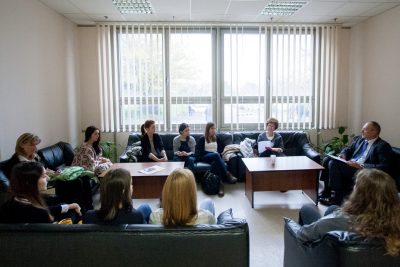 Reforms on medical deserts which means situations or areas where people have difficulties to access care (e.g. waiting time, doctor’s registration difficulties or long distances to hospital) are also a crucial project: it is focusing on skill mix, task shifting, use of e-health and IT systems, recruitment and retention management and policies, in order to guarantee universal coverage also in rural and underserved areas.
Reforms on medical deserts which means situations or areas where people have difficulties to access care (e.g. waiting time, doctor’s registration difficulties or long distances to hospital) are also a crucial project: it is focusing on skill mix, task shifting, use of e-health and IT systems, recruitment and retention management and policies, in order to guarantee universal coverage also in rural and underserved areas.
Or there is X-eHealth, with the purpose to develop the foundations for a common framework for medical imaging, discharge letters, laboratory results and rare diseases to flow both alongside citizens care pathway and across health entities between EU Member States and neighbouring countries.




